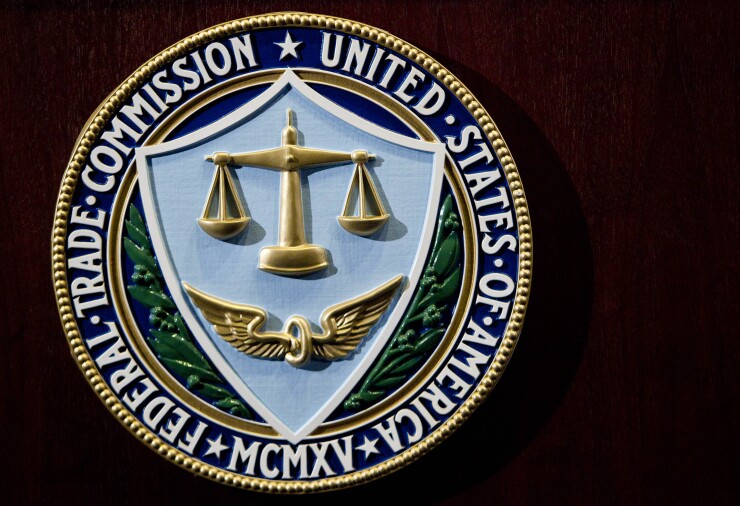Before a
The U.S. Chamber of Commerce and other business groups
The one exception will be to existing noncompetes applying to senior executives — whom the FTC generally defines as employees in policy-making positions who made at least $151,164 in the previous year. But if the new ban stands up to challenge in court, the prohibition will bar all new noncompetes even at the C-suite level.
The FTC proposed its ban in
"The FTC's final rule to ban noncompetes will ensure Americans have the freedom to pursue a new job, start a new business, or bring a new idea to market," FTC Chair Lina Khan said in a statement.
READ MORE:
When the new ban was still in the proposal stages,
SIFMA also noted that the FTC's jurisdiction doesn't extend to banks. That means the ban could apply in nonuniform and bewildering ways to firms that have both banking and brokerage arms, for example.
But industry lawyers and others question how far-reaching the ban's consequences will actually be. Richard Chen, a legal advocate for advisors and the founder of New York-based Brightstar Law Group, said the employee contracts he reviews seldom contain true-blue noncompete clauses.
"I do see them occasionally," Chen said. "But it's only about 10% to 20% of the time."
Far more common, he said, are so-called
The industry has tried to rein in these disputes through use of the industry-spanning Broker Protocol — a pact between firms setting strict limits on exactly what types of client information departing advisors are allowed to take. But various big firms, most notably
Suits over advisors' attempts to continue working with former clients have remained common. On April 19, for instance, a Financial Industry Regulatory Authority arbitration panel imposed
Chen said he thinks such disputes will remain common but that the new ban could nonetheless make a difference in at least one way. Many firms go beyond simple nonsolicitation clauses with the addition of what are known as nonacceptance or nonservice provisions. Unlike nonsolicits, which prohibit advisors from reaching out to former clients, these clauses ban them from accepting business from old customers who've approached them.
"I could see those being banned under the noncompete regime," Chen said. "Although this is obviously somewhat of a conjecture."
The FTC's ban on noncompetes does contain one exception that's likely to affect at least some owners of wealth management practices. Namely, owners with a 25% or greater stake in a firm will still be subject to contract provisions preventing them from going to work for rivals.
Noncompetes of this sort tend to be invoked following the acquisition of one firm by another. The purchases in these cases will often resort to a noncompete to help ensure its newly acquired business doesn't walk out the door with the former owners.
The U.S Chamber of Commerce's lawsuit, filed with three other business organizations in federal court in East Texas, similarly warns that the ban on noncompetes will force companies to turn to nondisclosure agreements and lawsuits alleging trade secret leaks in order to protect their proprietary information. Both the chamber and the tax firm Ryan LLC, which filed a separate suit in Dallas, contend the FTC has greatly overstepped its authority. The chamber's action notes that noncompetes have hitherto been regulated mainly at the state level.
California, for instance, already has a near-total ban in place. And state lawmakers in New York have been mulling
"From an IT and information security perspective, there has to be a mechanism to see if they are downloading information and sticking it on a thumb drive and taking stuff that doesn't belong to them," Avnet said. "That could create privacy issues for the firm."
Although nonsolicitation clauses are likely to remain a fixture of the wealth management industry, Avnet recommended advisors always consult a lawyer before signing a new contract.
"You want to make sure there isn't anything in there you would have a problem complying with if you have to leave this place," he said.






